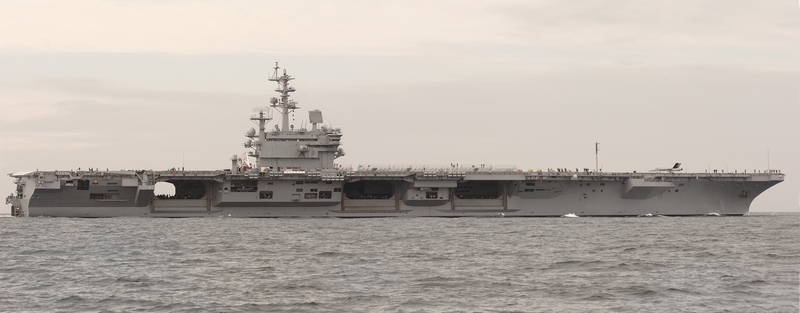
Britain cannot afford to neglect EU defence efforts
Britain is showing an unprecedented interest in closer defence co-operation with its European partners. The coalition government in London should be commended for initiating bilateral deals and projects amongst a limited number of EU countries. But in so doing, it has also sought to undermine EU defence efforts. This is a mistake. As Britain explores options for closer collaboration with its European partners, it should also exploit the opportunities offered by existing EU defence initiatives and institutions.
Like many of its European neighbours, the UK is cutting defence spending because of the economic crisis. The defence budget - already too small for what the government had committed to buy - is set to shrink by 8 per cent over the next four years. The coalition government is seeking to minimise the impact on the armed forces by reinforcing defence co-operation with selected allies. In November, Prime Minister David Cameron and President Nicolas Sarkozy announced a number of Franco-British initiatives, including the shared use of aircraft carriers and collaborative research for their nuclear deterrents. The same month, Britain launched a forum consisting of 11 North European countries - the Nordic and Baltic states plus Germany and Poland - designed to explore options for closer military collaboration.
But according to government insiders, the Ministry of Defence is deliberately keeping EU defence efforts in a state of 'malign neglect'. Over the last decade, the member-states have developed a series of EU initiatives to improve European military capabilities through closer co-operation. Britain's Conservative defence secretary, Liam Fox, argues that EU-wide defence initiatives are a waste of effort and money because most of the 27 spend little on defence and are unwilling or unable to send soldiers into harm's way. Fox also considers that EU defence policy lacks democratic accountability: since the Lisbon treaty entered into force, Catherine Ashton, the EU's High Representative, has combined the jobs of EU commissioner for foreign affairs and external representative of the EU member-states. For Fox this 'double hatting' gives the supranational Commission an undesirable foothold in defence policy - not least because Ashton also heads the European Defence Agency (the EDA, a body which helps member-states develop defence capabilities collaboratively).
The Conservatives are right to draw attention to the wide differences in size, sophistication and strategy of the armed forces of the various EU countries. It makes sense for those countries with more ambitious defence policies to work together in smaller groups. The UK is likely to find most affinities with France, the only European country with a similarly large defence budget and a tradition of expeditionary warfare. It is also true that overall progress has been limited since Britain and France launched EU defence co-operation in 1998, in the hope of incentivising European countries to spend their defence budgets more efficiently.
Nevertheless EU efforts have led to some real improvements. Sweden, for example, took advantage of the EU battle group initiative - in which member-states agreed to put troops on standby for urgent EU military deployments - to develop its expeditionary forces. Several EU countries decided to lease jointly Russian aircraft in order to improve the availability of strategic airlift for EU (and NATO) operations. EU military deployments are maintaining stability in Bosnia and Herzegovina, and combating piracy off the coast of Somalia.
The European Defence Agency has helped several member-states upgrade their helicopters so that they can take part in operations in Afghanistan. The Agency is also undertaking several large research programmes, including on unmanned aerial vehicles, from which the UK, and British industry, may gain. And since most EU defence ministries are represented in the EDA, the Agency is a useful forum for exploring opportunities to save costs on bilateral and multilateral projects, or at the least for co-ordinating defence cuts. Britain's Conservative leaders should not let their wariness over the role of a supranational institution in EU defence policy blind them to the synergies that the EDA and other initiatives could facilitate. All significant decisions regarding defence matters continue to rest firmly with the member-states. Recently the US government - worried about the continued deterioration of European armed forces - has become more supportive of EU defence co-operation. The Obama administration encourages any initiative that could minimise the damage from defence budget cuts.
The British government should adopt the same attitude. The EU has only made modest contributions to improving European military capabilities. But at a time of renewed cut-backs in defence spending across Europe, Britain and its partners cannot afford to neglect a key framework available for exploring joint cost-saving projects.
